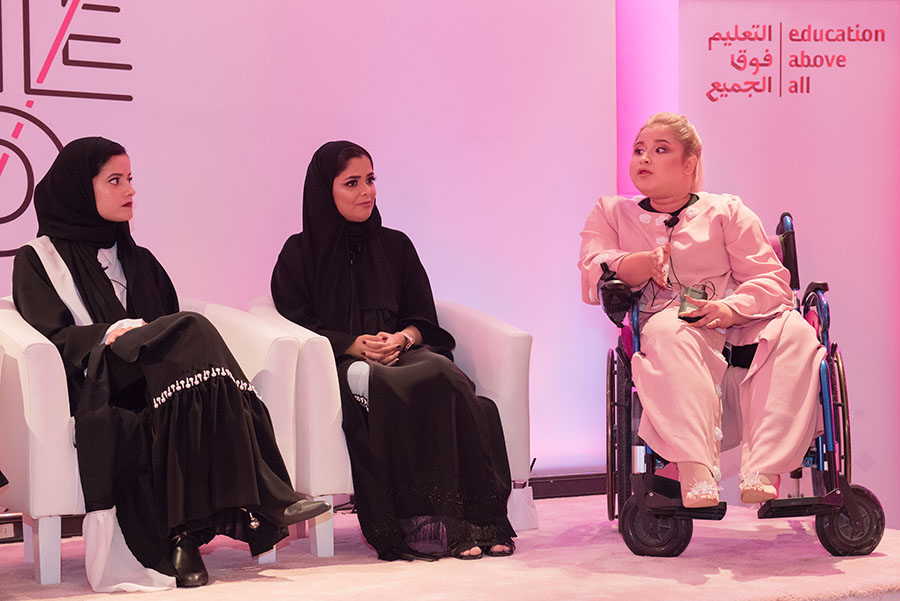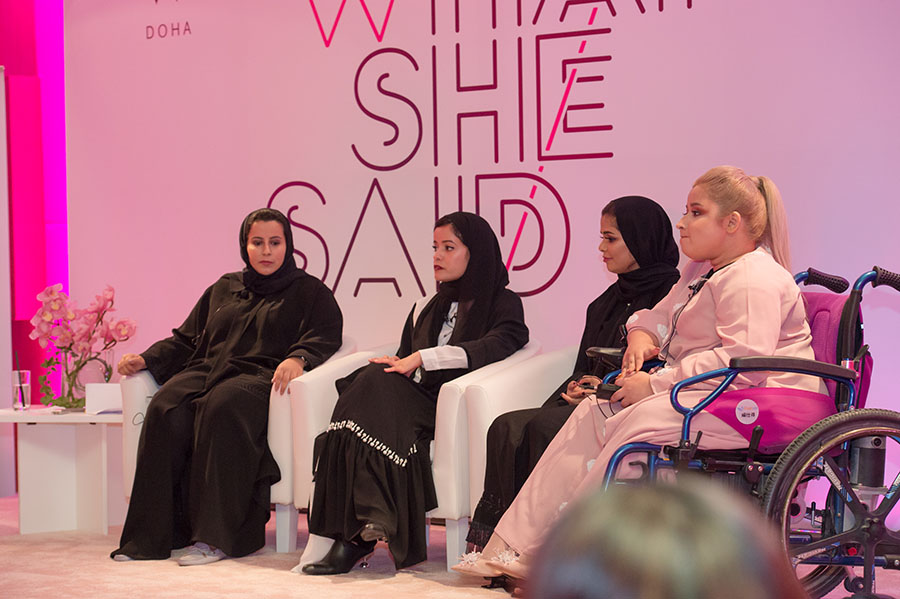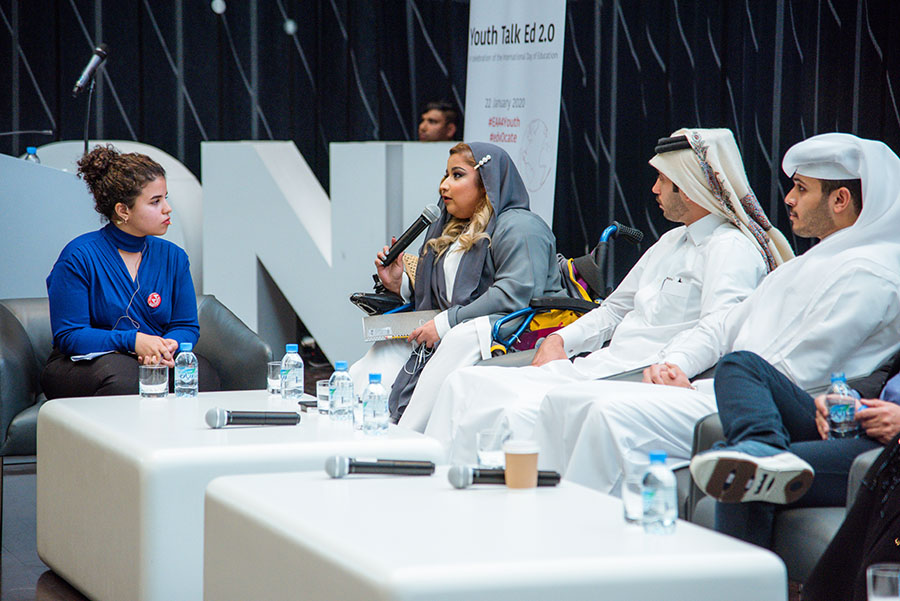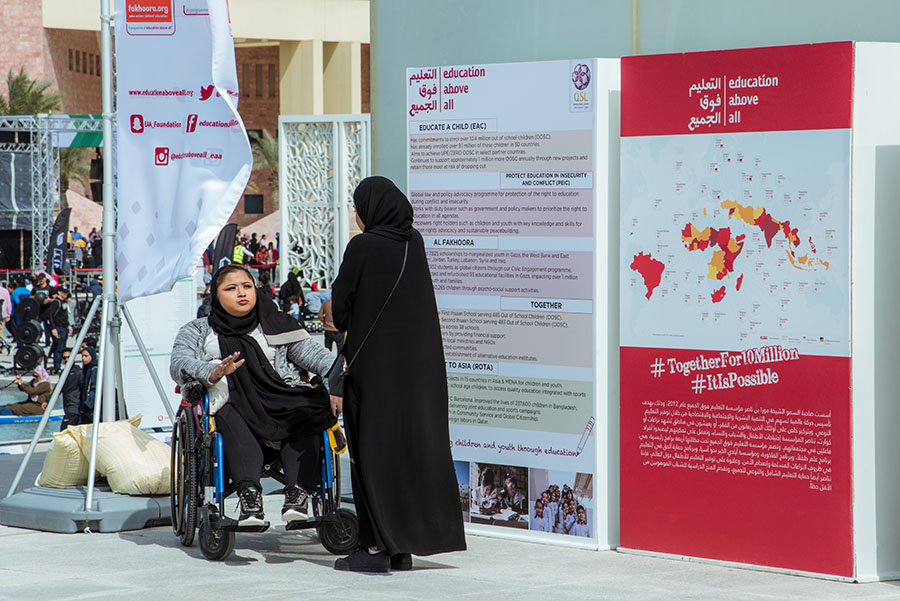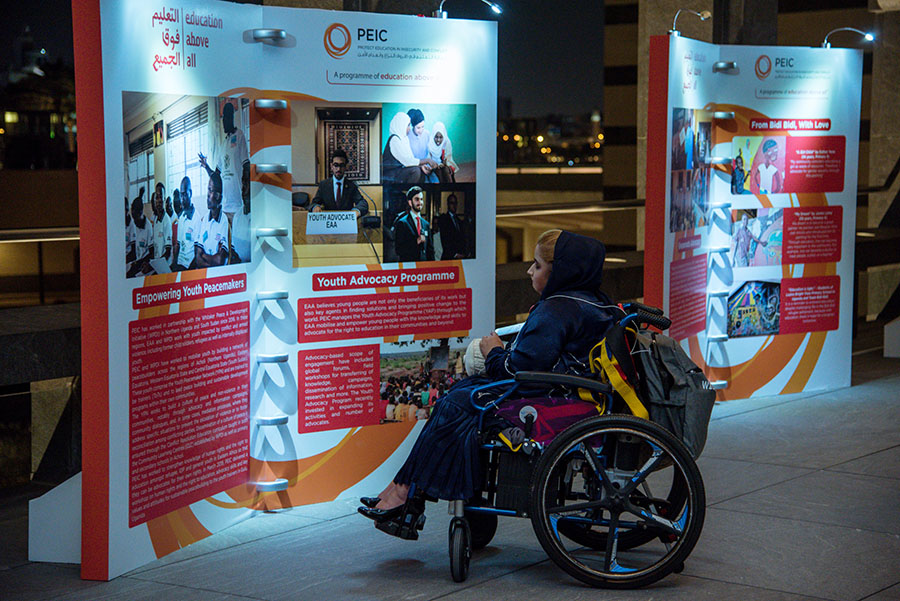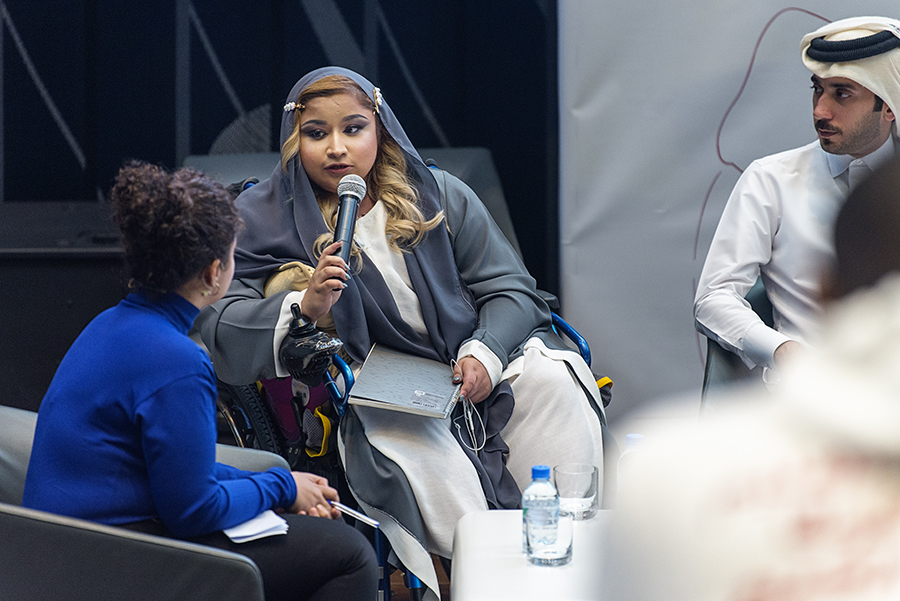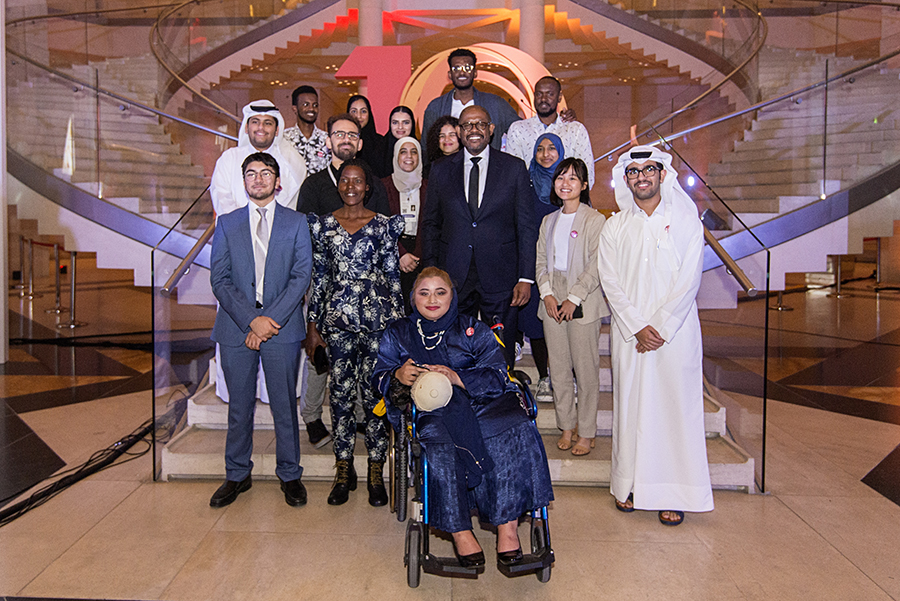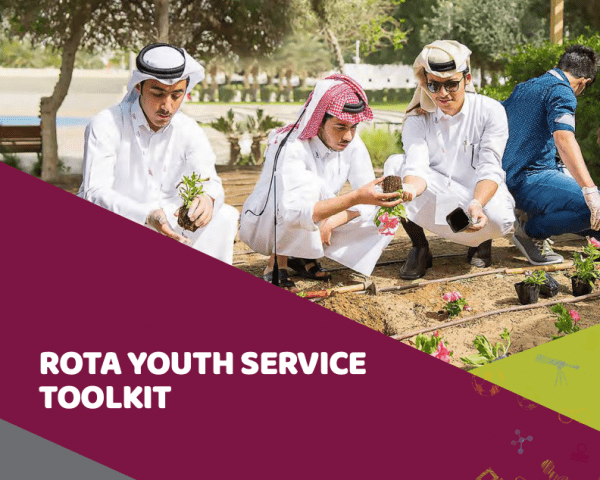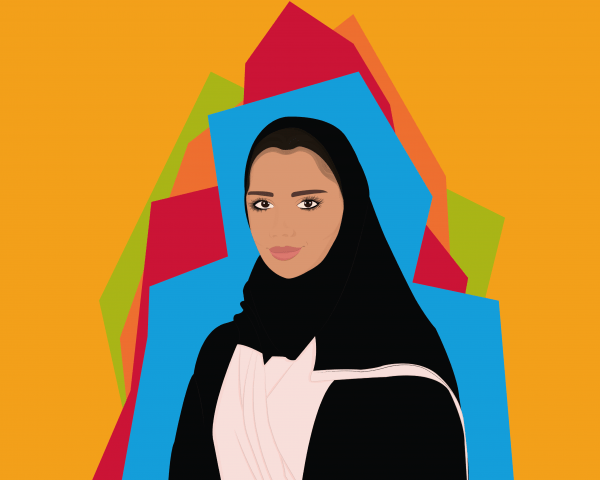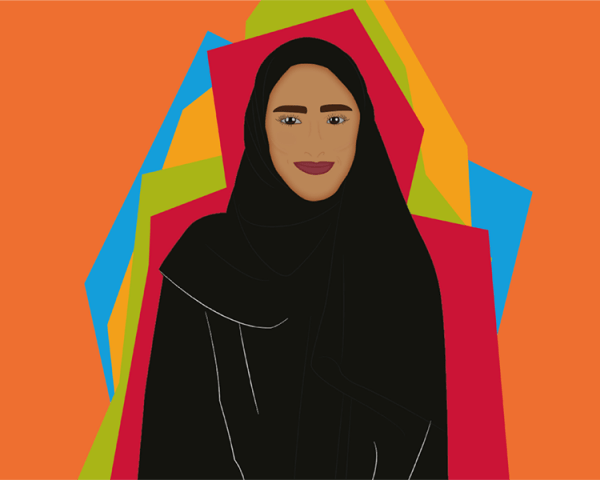EAA Youth Series: Nawaal Akram
I'm a disability rights advocate, comedian, and one of the 100 most influential women in the world according to the BBC 100 Women 2017 list. I was born and brought up in Doha, Qatar. My activism work began when I was 14 years old after I realized how journalists and their work can change societies and highlight issues that need to be fixed to make the world a better place. I watched journalists tell stories of people who believe in a cause, and share their stories of how they started to advocate for that cause. I also believed that the best way for journalists to connect with people was through social media.
I started using social media to tell stories of other people with disabilities and my own story of what happened when I was ten years old, how I was forced to leave the education system and was never able to go back. Sharing my story helped me connect with parents and people with disabilities in Qatar and the Middle East, who experienced the same issues. As I talked to them, I became convinced that educating parents and people with disabilities on their human rights is essential. My journey of sharing others' stories had a positive impact on some schools, making them more accepting of children with disabilities.
Through the power of the internet, I found resources to teach myself skills in research, source-checking, and information gathering to promote the values of the UN Convention on Human Rights. I got the chance to give workshops at schools and universities such as Georgetown University in Qatar and Qatar University, and helped countless students at Northwestern University in Qatar on how to research and find people with disabilities in communities and maintaining the integrity of their story. I have also shared my experiences on how to help and be a better ally to the disabled community.
Through these workshops, I was able to share my message on the importance of equality across society, with regards to areas such as education and benefits.
Protecting the rights of people with disability is not just a moral duty. Innovation and advancement of our society cannot happen if people with disabilities are not included in every aspect of life.
I'm a curious person, which leads me to do comedy. To me, humor is a great way to connect with people regardless of which community you come from because laughter brings everyone together. I use comedy as an outlet to help me tell others about funny experiences I get into in society. Comedy also helps me break down a stereotype and show that not all disabled people are shy or timid. It helps normalizing people with disabilities, and I believe it is essential to ensure that people with disabilities are equally represented in different fields as well as in media.
I wanted to teach people about disability etiquette and raise awareness, so I started organizing events under my support group ‘Muscular Dystrophy Qa’ to raise awareness about muscular dystrophy and disability rights in the region. To help improve accessibility in Qatar, I got involved in accessibility forums to help improve sports facilities. I was also part of a group of people with disabilities who advised on public transportation in Qatar, sharing our concerns and giving feedback on how to improve access for people with disability, and how to accommodate people with disabilities to have more independence to go around the country.
Through my experiences, I have learnt about so many different disability communities. This taught me to be a better person with more empathy and led me to understand that the world is big enough to accommodate everyone. We need society and government to come together to encourage changes in laws and policies to make sure no one is discriminated against, independent on what type of disability, gender, or heritage they might have, and to help stop the formation of new barriers. We should treat people with disabilities, regardless of their gender, ancestry, or physical disability, equally in the law and policies' eyes. I hope that we can create a system that reintegrates people with disabilities into the education system.
My journey of becoming a Youth Advocate has also taught me more about conflicts and how people with disabilities live in areas dominated by conflicts and insecurity. I now realize that we need to have more creative ways and solution-based thinking to provide everyone with a chance to access their right to education regardless of the circumstances they live in.








